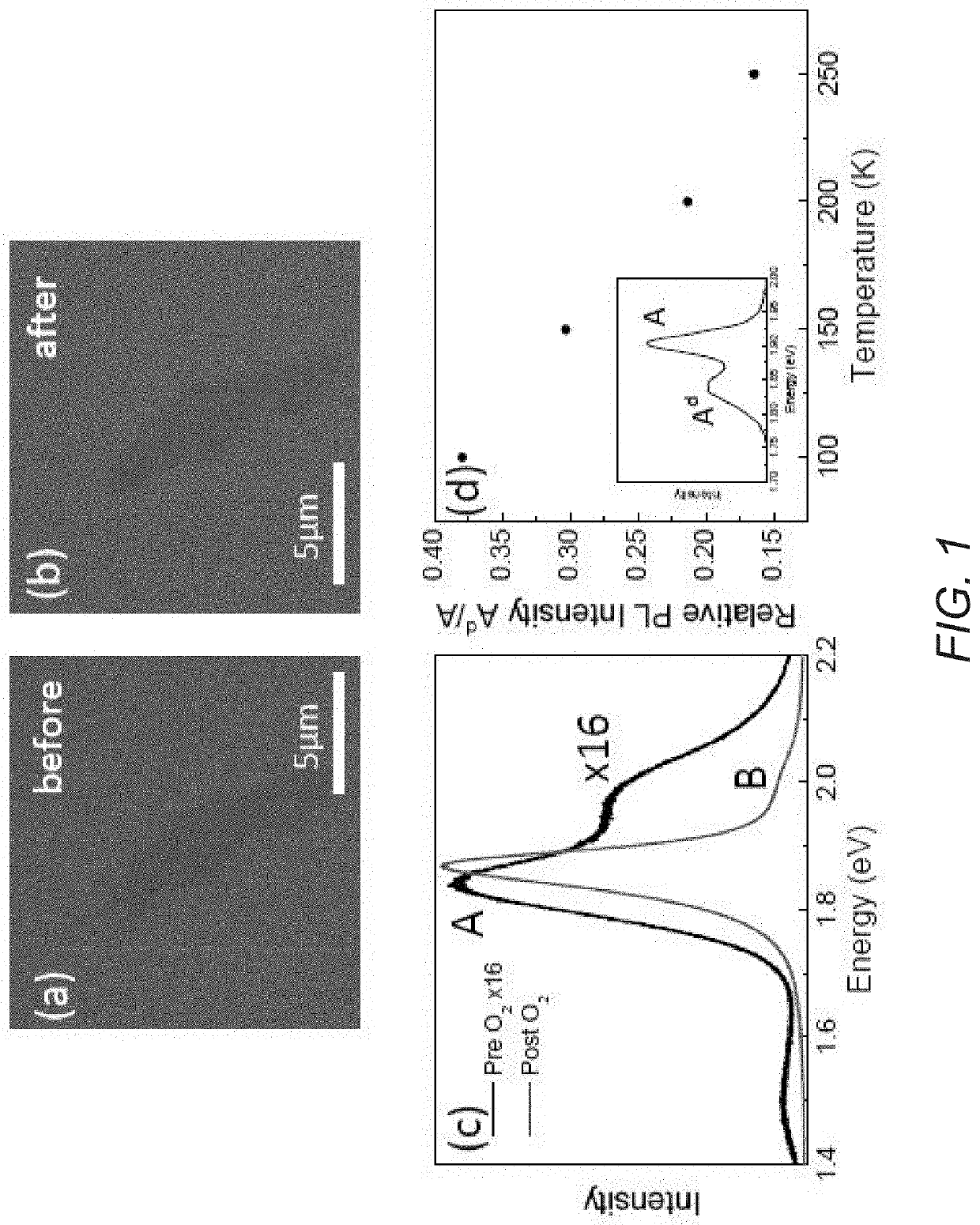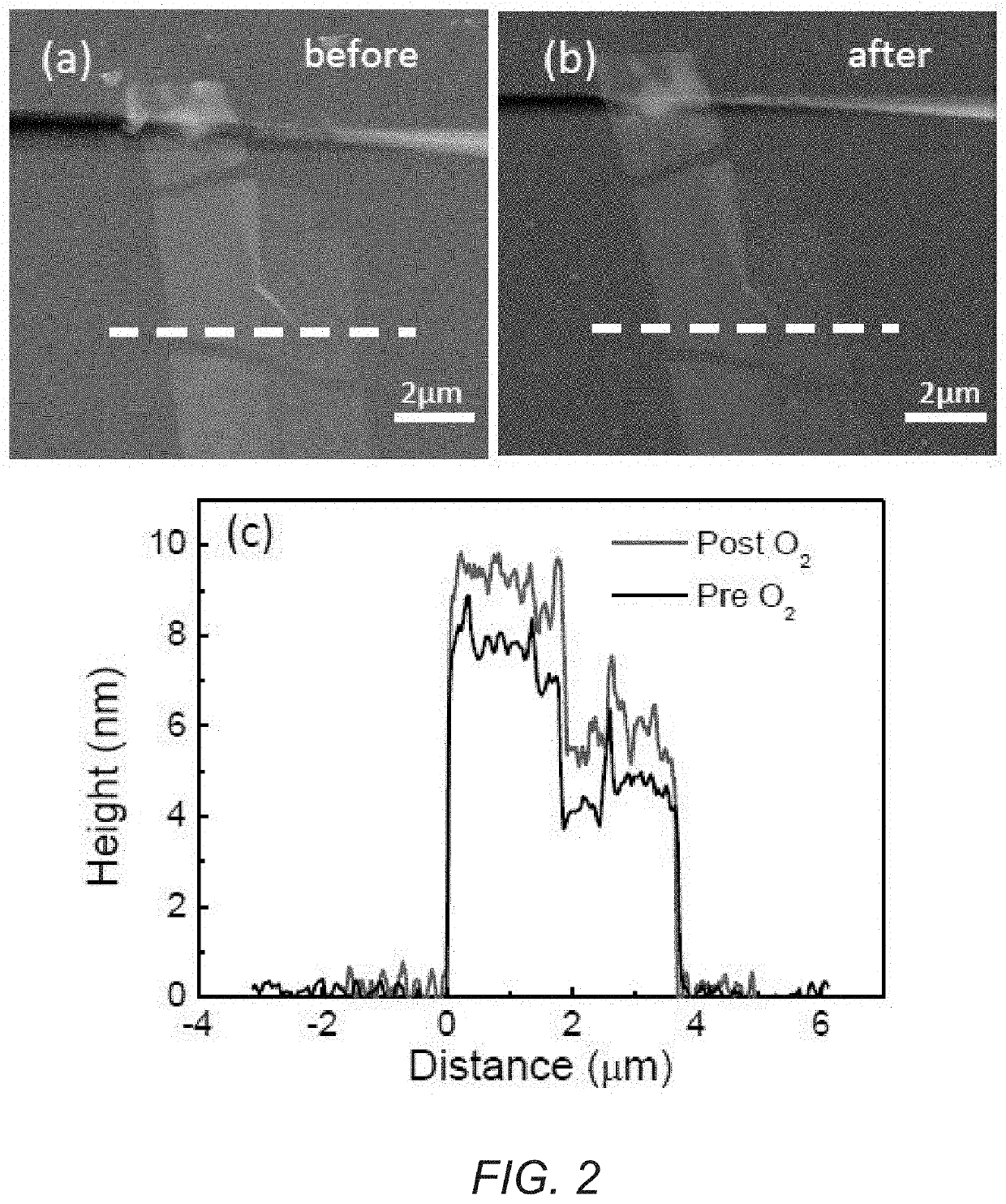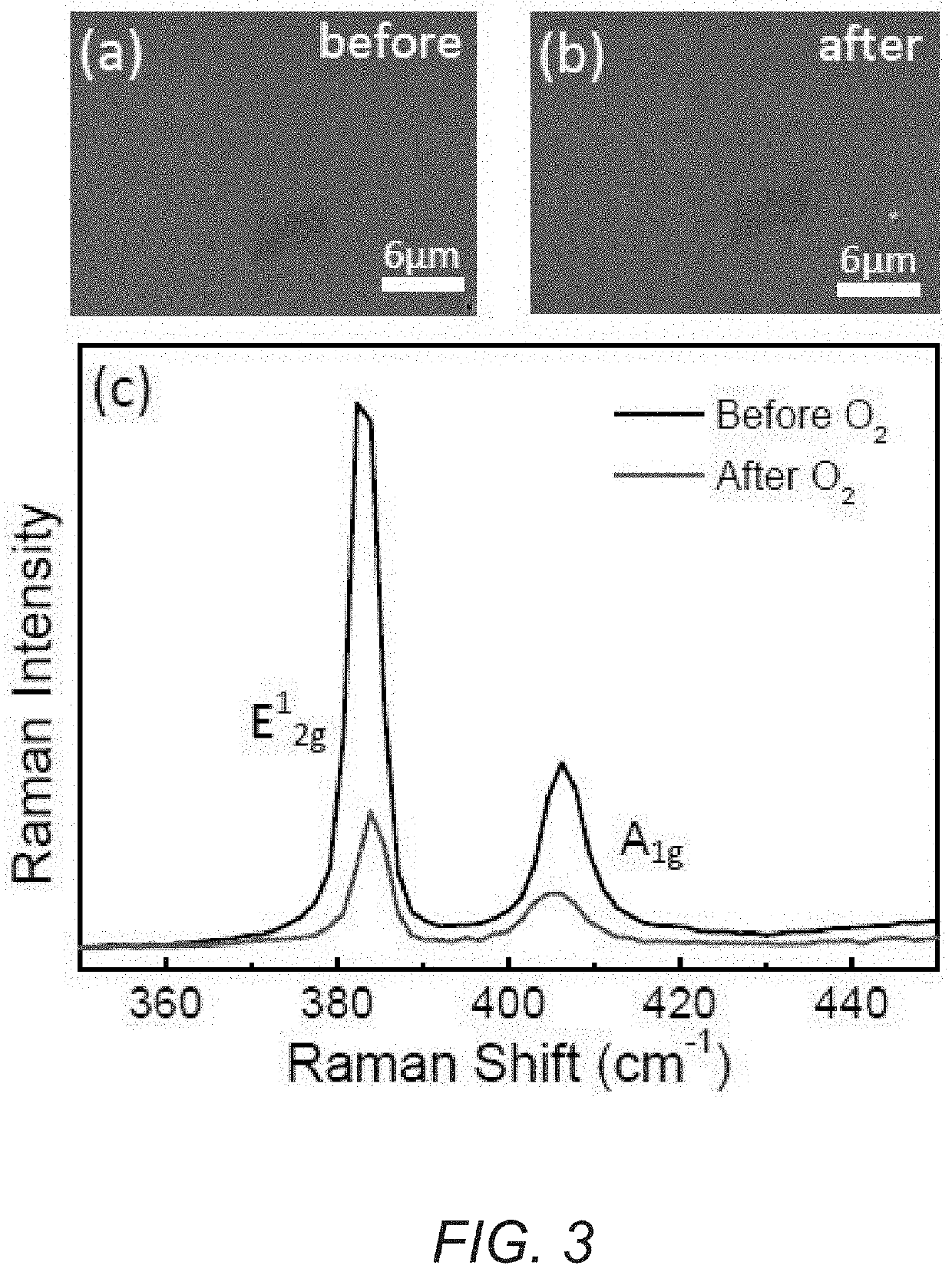Bulk direct gap MoS2 by plasma induced layer decoupling
a technology of transition metal dichalcogenide and gap mos2, which is applied in the field of direct transition metal dichalcogenide, can solve the problems of limited utility in the field of optoelectronics and limit its potential use in practical devices, and achieves the effects of increasing the photoluminescence efficiency of tmdc, increasing interlayer separation, and increasing charge neutral doping
- Summary
- Abstract
- Description
- Claims
- Application Information
AI Technical Summary
Benefits of technology
Problems solved by technology
Method used
Image
Examples
Embodiment Construction
[0021]Illustrative embodiments are now described. Other embodiments may be used in addition or instead. Details that may be apparent or unnecessary may be omitted to save space or for a more effective presentation. Some embodiments may be practiced with additional components or steps and / or without all of the components or steps that are described.
[0022]A robust method for engineering the optoelectronic properties of many-layer MoS2 using low energy oxygen plasma treatment is now described.
[0023]Gas phase treatment of MoS2 with oxygen radicals generated in an upstream N2—O2 plasma may enhance the photoluminescence (PL) of many-layer, mechanically exfoliated MoS2 flakes by up to 20 times, without reducing the layer thickness of the material. A blue shift in the photoluminescence spectra and narrowing of linewidth may be consistent with a transition of MoS2 from indirect to direct band gap material. Atomic force microscopy and Raman spectra reveal that the flake thickness may actually...
PUM
| Property | Measurement | Unit |
|---|---|---|
| thickness | aaaaa | aaaaa |
| thicknesses | aaaaa | aaaaa |
| thicknesses | aaaaa | aaaaa |
Abstract
Description
Claims
Application Information
 Login to View More
Login to View More - R&D
- Intellectual Property
- Life Sciences
- Materials
- Tech Scout
- Unparalleled Data Quality
- Higher Quality Content
- 60% Fewer Hallucinations
Browse by: Latest US Patents, China's latest patents, Technical Efficacy Thesaurus, Application Domain, Technology Topic, Popular Technical Reports.
© 2025 PatSnap. All rights reserved.Legal|Privacy policy|Modern Slavery Act Transparency Statement|Sitemap|About US| Contact US: help@patsnap.com



